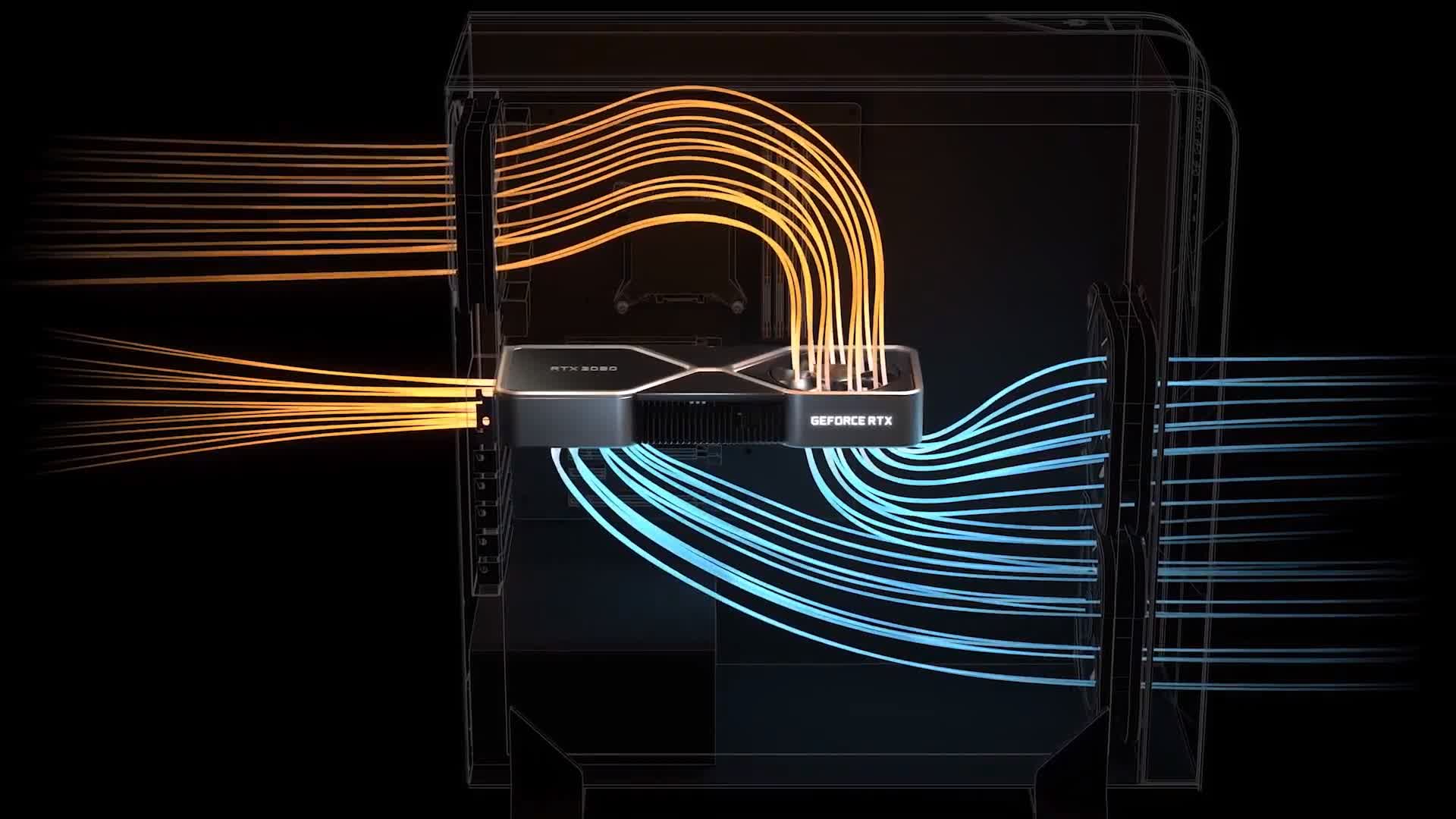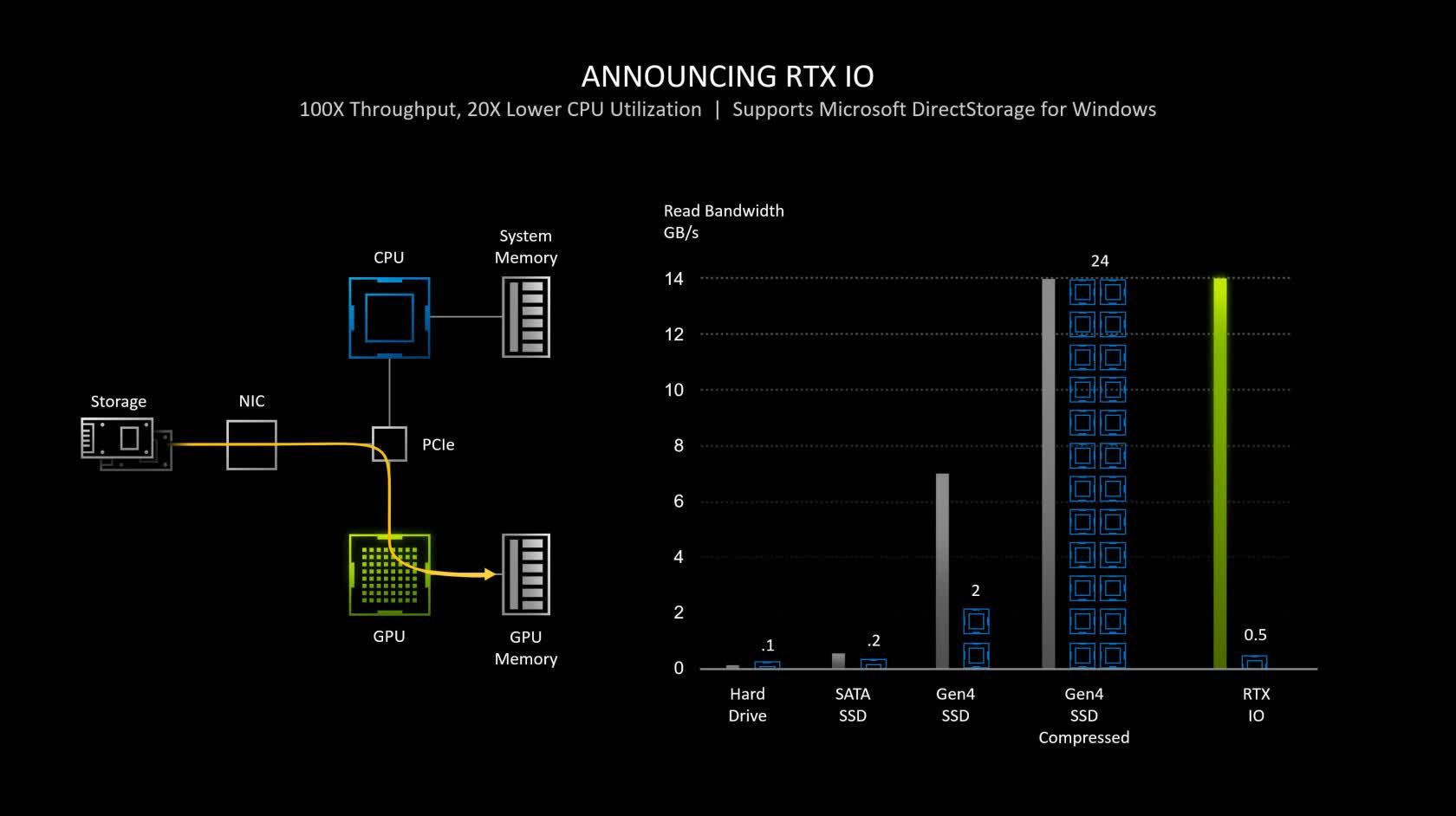Something to look forward to: Next-gen consoles are promising quite a few exciting new features, such as heavily reduced load times and reduced mesh or texture pop-in. Fortunately, PC gamers will be able to get their hands on that functionality as well -- as long as they own an Nvidia RTX GPU. The company today revealed "RTX IO," a suite of technologies that enable "rapid GPU-based loading and game asset decompression."

This technology will run on Microsoft's next-generation DirectStorage API, and it will enable "up to" 100x faster drive performance compared to traditional hard drives. Nvidia claims RTX IO can offload much of the work your CPU would ordinarily be doing onto the GPU, which boosts frame rates, speeds up load times, and paves the way for the next generation of open-world games.
"Object pop-in and stutter can be reduced, and high-quality textures can be streamed at incredible rates, so even if you’re speeding through a world, everything runs and looks great," Nvidia explains in their announcement post. "In addition, with lossless compression, game download and install sizes can be reduced, allowing gamers to store more games on their SSD while also improving their performance."
That last bit is particularly notable. It's no secret that high-end NVMe SSDs tend to have limited storage capacities, so if Nvidia is truly able to cut down on game install sizes, it could be a tremendous boon for PC gamers.

The ever-growing install size of Call of Duty: Modern Warfare (which sits at 224GB as of writing) is a perfect example of why this sort of technology is will not just be useful, but potentially essential in the long run.
RTX IO will become available as soon as developers begin releasing RTX IO-enhanced games. However, since developer previews of DirectStorage won't be rolling out until next year, we don't expect to see any of the perks mentioned above until at least Q2 2021, if not the second half of the year.
RTX IO will function on both Turing and Ampere GPUs, so RTX 20-series owners won't be left in the dust here. We'll be keeping our eyes on RTX IO in the coming months, and we hope it lives up to the hype in the long run.
https://www.techspot.com/news/86601-nvidia-rtx-io-technology-promises-faster-load-times.html